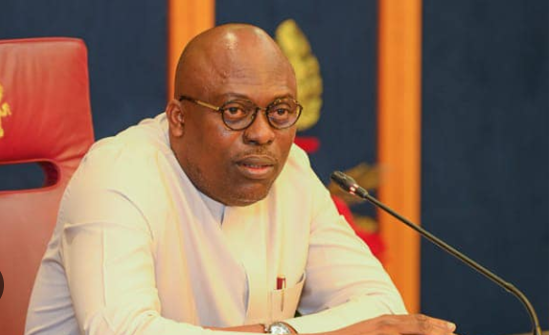The political landscape of Rivers State is poised for a shift as Governor Siminalayi Fubara prepares to return to office on September 18th, following a period of suspension. The All Progressives Congress (APC), the main opposition party in the state, has announced its intention to collaborate with the reinstated governor, while simultaneously maintaining its commitment to holding him accountable for his governance. This dual approach signals a potentially complex dynamic between the ruling Peoples Democratic Party (PDP) and the APC, with the latter aiming to strike a balance between cooperation and critical oversight. The APC’s stated willingness to work with Fubara suggests a pragmatic approach to governance, prioritizing the interests of the state over partisan politics, at least on the surface. However, their insistence on retaining the right to criticize the governor’s policies indicates a cautious optimism rather than unconditional support. This measured stance suggests the APC is prepared to engage constructively with the Fubara administration while remaining vigilant against any perceived missteps.
The APC’s strategy for navigating the political terrain of Rivers State extends beyond its interactions with the governor. The party’s chairman, Chief Tony Okocha, has emphasized the importance of consolidating and expanding its membership base. This focus on grassroots development suggests a long-term vision for the APC’s growth and influence in the state. Okocha’s remarks indicate that the party is not merely content with playing the role of opposition but is actively working to strengthen its position and build momentum towards future elections. This proactive approach, coupled with the party’s stated commitment to offer constructive criticism of the Fubara administration, paints a picture of a party aiming to establish itself as a credible alternative to the ruling PDP.
The recently concluded local government elections have provided a glimpse into the evolving political dynamics in Rivers State. The APC’s strategic decision to focus its resources on areas where it perceived a comparative advantage, rather than contesting all seats, speaks to a calculated approach to electoral politics. By concentrating on strongholds and consolidating its support base, the APC aims to maximize its chances of success while conserving resources for future campaigns. This calculated move, coupled with Okocha’s confident assertion that the APC is “wearing psychedelic shoes” now compared to its barefooted state in the 2023 elections, reveals a renewed sense of optimism and a belief in the party’s growing influence. The party’s chairman even went so far as to express confidence in fielding the current president for a second term in 2027. This bold statement underscores the APC’s growing confidence in its ability to challenge the PDP’s dominance.
The APC’s narrative of a rising tide and growing influence is juxtaposed with its portrayal of a declining PDP. Okocha characterized the PDP as being “in tatters,” with members defecting to the APC. This rhetoric of decline and defection serves to bolster the APC’s image as the party of the future, attracting disillusioned PDP members seeking a new political home. Furthermore, Okocha extended a direct invitation to the FCT Minister, a prominent PDP figure, to join the APC, further emphasizing the party’s perceived momentum and the PDP’s alleged vulnerability. This aggressive recruitment strategy highlights the APC’s ambition to not only consolidate its existing support but also to actively poach members from its rival, weakening the PDP’s hold on power.
The backdrop to these political maneuvers is Governor Fubara’s suspension and impending reinstatement. Fubara’s suspension, ordered by President Tinubu in March, stemmed from concerns over rising political tensions and attacks on oil facilities in Rivers State. The President’s appointment of an administrator for an initial six-month period signaled a serious intervention in the state’s affairs. The timing of Fubara’s return, coinciding with the recent local government elections, adds another layer of complexity to the political landscape. The FCT Minister, Nyesom Wike, suggested that the elections paved the way for Fubara’s reinstatement, implying a connection between the electoral outcome and the governor’s return to power.
The convergence of these events—Fubara’s reinstatement, the APC’s evolving strategy, the local government elections, and the narrative of a declining PDP—sets the stage for a period of potentially significant political realignment in Rivers State. The APC’s declared intention to cooperate with Fubara while holding him accountable creates a nuanced dynamic with the potential for both collaboration and conflict. The party’s focus on grassroots development, strategic electioneering, and active recruitment of PDP members signals its ambition to challenge the established political order and emerge as a dominant force in the state. The coming months will undoubtedly reveal whether the APC can capitalize on this momentum and reshape the political landscape of Rivers State.


